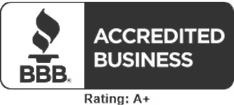Thinking About Tapping Into Your 401(k)? Read This First!
It’s easy to see why a growing 401(k) balance looks tempting. After all, that money is yours, and if you’ve been contributing consistently, the total might be bigger than your emergency fund. But before you borrow or withdraw from your retirement account, take a moment to understand what’s really at stake.
Using your 401(k) might help in the short term, but it could put your future financial security at risk. Here’s what to consider before making that decision.
What Are You Taking Away From?
When you take money from your retirement account, you are pulling from your future. That money is meant to support you when you are no longer working. Ask yourself what the money will be used for and if there are better ways to cover the expense.
If it's for college tuition, look into more affordable options or student loans first. If it’s to pay off debt, speak with a certified credit counselor about other repayment plans. You may have access to alternatives like personal loans, home equity loans, or emergency savings. These options often come with fewer long-term consequences than borrowing from your retirement.
Understanding the Difference: Withdrawal vs. Loan
There are two main ways to access funds from your 401(k): a withdrawal or a loan. Each comes with its own risks.
Early Withdrawal
An early withdrawal means taking money out of your account without the intention of paying it back. You will likely owe income taxes on the amount you take out. Plus, if you're under 59½, you may also have to pay a 10 percent penalty. That adds up quickly and reduces what you get to keep.
401(k) Loan
Borrowing from your 401(k) works differently. You take out a loan from your own account and repay it over time, usually through automatic paycheck deductions. This option can be less damaging than a withdrawal since you are paying yourself back, not losing the money permanently.
Still, it’s not without risk. Make sure the repayment plan fits within your budget. Missing payments could create even bigger problems down the road.
Be Honest About Job Stability
If you lose your job or leave voluntarily while still repaying a 401(k) loan, the entire remaining balance could be due within 60 days. If you cannot pay it off in time, the IRS may treat the unpaid amount as an early withdrawal. That means you could be stuck with taxes and a penalty.
This is why it's important to consider how secure your current job is. Think about whether your income is consistent and if you can count on it staying that way during the loan repayment period.
When Is It Okay to Use Your 401(k)?
There are emergencies when tapping into your retirement account might be the only option. Sudden medical bills, a major housing repair, or unavoidable expenses can put pressure on any budget. If you have explored all other avenues and truly need the funds, you can use them carefully and strategically.
The key is to make sure you fully understand the tradeoffs. A 401(k) loan or withdrawal should be a last resort, not your first choice.
Need Help Deciding? Talk to a Credit Counselor
You don’t have to make this decision alone. At Family Credit Management, our certified credit counselors can help you look at your full financial picture and explore all your options. We can help you create a budget, reduce debt, and avoid decisions that may hurt your future financial stability.
Looking for ways to pay your debt without tapping into your retirement savings?
Get a free debt consolidation quote online now!









-min.avif)

